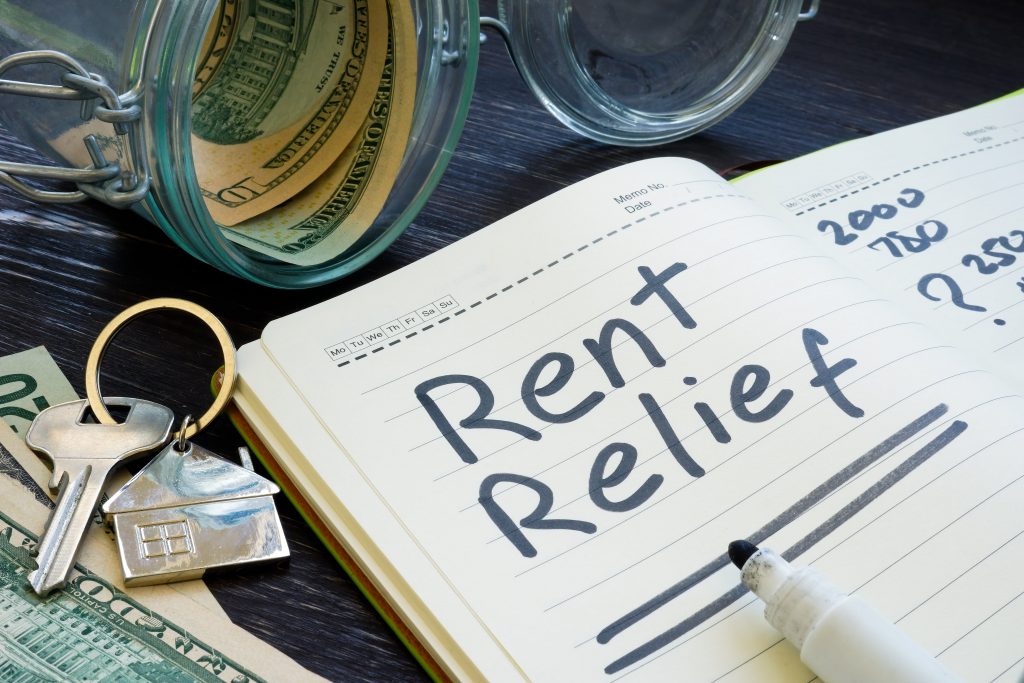The Tenant Relief Act or Assembly Bill 3088 was signed into law by California Governor Gavin Newsom on August 31, 2020. AB 3088 was designed to provide relief to tenants who have been financially affected by COVID-19 and are struggling with rent payments.
AB 3088 provides state-wide protections for tenants and landlords in the midst of the coronavirus pandemic. This law protects tenants in danger of eviction and landlords concerned with looming foreclosures.
If you want to know how this law impacts you as a landlord or tenant, you can reach out to us at Express Evictions. You can also refer to the information provided below regarding AB 3088.
Protections Provided by AB 3088
Renters experiencing COVID-19-related economic distress, including lost income and an increase in certain expenses (e.g. childcare, health), are protected from eviction due to their inability to pay rent from March 1, 2020 through January 31, 2021.
After March 1, 2021, landlords can try to recover any of the unpaid rent in a small claims court.
Key Provisions in AB 3088
Some of the most critical benefits of the AB 3088 include the following:
- Evictions due to a tenant’s failure to pay rent are not allowed before October 5, 2021, even if the renter did not experience a loss of income because of COVID-19.
- All California residential tenants have minimum just-cause eviction protection until January 31, 2021, so landlords cannot evict tenants without stating a reason permitted by the law.
- Tenants experiencing COVID-19-related financial distress have credit protection.
Moreover, landlords are subject to more penalties if they illegally lock out their tenants, turn off utilities like air conditioning or hot water, detach external doors or windows, or commit other extreme forms of harassment toward their tenants.
AB 3088 Protection Eligibility
For tenants to experience the benefits offered by AB 3088 fully, they should comply with certain requirements and prepare documentation to support their claims.
To benefit from the provisions of AB 3088, residential tenants need to satisfy certain requirements:
- If they have rent due between the March 1 and August 31, 2020 period, they must complete a declaration form stating that they are experiencing COVID-19-related financial distress and must not be evicted due to unpaid rent.
- For rent that’s due between September 1, 2020 and January 31, 2021, renters who were able to complete a hardship declaration on their COVID-19-related economic distress and pay 25 percent of their rent due for each month of that time period by January 31, 2021 can never be evicted for failing to pay the rest of the rent.
- Renters who were unable to pay the 25 percent are protected from eviction until February 1, 2021. This is based on their rent due from September 1, 2020 to January 31, 2021; that is, if they were able to file the declaration stating that they have lost their income because of COVID-19.
When a landlord wants to recover unpaid rent during the March 2020 to January 2021 period, they are mandated to give their tenants a 15-business-day notice called the “To Pay Rent or Quit [get out]” form.
It includes an explanation of the new law and a blank declaration that the tenant can sign, which states that the renter is experiencing economic impacts from COVID-19. These include loss of income or an increase in expenses.
Landlords with high-income tenants can ask for documentation of any economic impacts they experience. However, for most renters, such additional documentation is not required.
When a landlord sends a notice to pay or get out, the affected tenant should fill out and return the attached “declaration of COVID-19-related economic impacts” form within 15 business days.
Tenants must send this document immediately and ensure they have a copy of the notice and their signed hardship declaration. Every time a tenant receives a 15-day notice, they must sign the declaration of economic distress and return it to the landlord.
Tenants should always keep records or copies of all rent payments and their corresponding receipts, communications with their landlord, notices sent by the landlord or their representative, and signed declaration forms furnished to the landlord stating they are experiencing COVID-19 economic impacts.
Impact of Local Protections
Aside from AB 3088 and similar laws, there are local laws enacted in cities and counties that might offer additional protection to tenants or not allow evictions temporarily, no matter the reason.
Since regulatory overlaps could cause confusion – whether you are a tenant or landlord – it’s important to have clarity when it comes to legalities that can potentially affect you.
If you have any questions concerning AB 3088, please get in touch with us at Express Evictions.
Protecting your rights and welfare is our priority.






